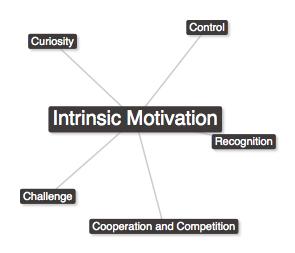 For a few years now, I’ve become interested in creativity and leadership in today’s ever-changing business world. Last spring, I presented a paper on the topic at our university’s conference whereby I used Malcolm Knowles’s book on the topic and helped relay what makes successful creative leaders. Knowles’s findings and suggestions state that creative leaders inspire others in business. There are many ways you can get members or your organization or team to become more vested in their jobs, but one particular notion that is propelling companies to—as Steve Jobs suggested in his Apple ads, “think different,”—is to allow intrinsic motivators to set the stage for business today.
For a few years now, I’ve become interested in creativity and leadership in today’s ever-changing business world. Last spring, I presented a paper on the topic at our university’s conference whereby I used Malcolm Knowles’s book on the topic and helped relay what makes successful creative leaders. Knowles’s findings and suggestions state that creative leaders inspire others in business. There are many ways you can get members or your organization or team to become more vested in their jobs, but one particular notion that is propelling companies to—as Steve Jobs suggested in his Apple ads, “think different,”—is to allow intrinsic motivators to set the stage for business today.
In 2010, Coon & Mitterer defined instrinsic motivation as “occurring when we act without any obvious external rewards. We simply enjoy an activity or see it as an opportunity to explore, learn, and actualize our potentials.” Brown (2007) defined it as “the reason why we perform certain activities for inherent satisfaction or pleasure; you might say performing one of these activities is reinforcing in and of itself.” In both business and education, allowing folks to engage for their own sake helps them find ways to express their creativity and contribute to an organization. Sometimes students or employees will define work as interesting, engaging, enjoyable, and just plain fun; if they do this, they have found some sort of intrinsic reward. They are satisfied with the work.
There are five factors that can lead to intrinsic motivation, and they have the potential to make people feel good about the work they do. These five factors include (1) a challenge: people become more connected to things that boost self-esteem or provide satisfaction when reaching a goal; (2) curiosity: if people are interested in things, they tend to become more stimulated by them; (3) control: people want control over their own lives and choices; they don’t want to be told what to do and how to do it all the time; (4) cooperation and competition: cooperating with others to solve problems and create things builds camaraderie. Likewise, a little healthy competition can push us to work better to complete certain tasks; and finally, (5) recognition: few people turn down a compliment, accolade, or general praise.

To better understand intrinsic motivation, look at each of the five categories and ask yourself what motivates you to do certain things. What motivates you at work, and do you find job satisfaction because of any of the intrinsic factors? What motivates you to pursue outside activities, such as a craft, a hobby, sports, etc? Why do you continue to participate in these activities?
When we are not forced to do things, but rather feel that we have some control over our own satisfaction, we typically become more vested in the tasks at hand. Look at creative companies such as Apple, Zappos, Google, Amazon and Starbucks. These companies did not get where they are today because they didn’t value their employees’ creativity; they got where they are because innovation and a willingness to allow time for creativity was important.
Whether you work independently or in a larger group, you still need to understand your own intrinsic motivators. What motivates me as an educator? I can answer that: seeing students secure internships; watching them present their ad pitches well at the end of the semester; seeing students grow into confident writers. As well, personally, I am motivated by time spent writing and researching to fulfill that side of my personality and professional goal. Now, as an independent author, different things motivate me than perhaps would do so as a professor. Being a writer is an autonomous job, but at the end of the day, a reward I get is satisfaction, especially if someone reads one of my books and enjoys it. I also enjoy the challenge. I like the control I have over my own project (which is why I enjoy being an independent author so much).
If you don’t already know what motivates you, make a list. I had my students in internship preparation class today make a list of what will motivate them one day when they get a full time job. For some, it was money; others said flexibility; others said working in teams with others and enjoying a team spirit. These are all good motivators, and for each of us they are different.
You just need to learn which ones speak to you.

